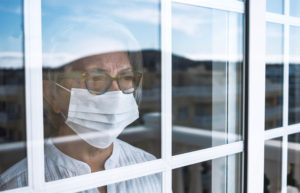
Most people were taken aback by that. I certainly was. Especially because earlier reports suggested it had a relatively short lifespan on surfaces. But now they’re saying it can last for nearly a month on hard, smooth surfaces like smartphone screens and stainless steel.
The new study observed the virus could survive for 28 at days 68 F (20 C). As the temperature increased, more virus died.
With fall in full swing and winter around the corner, these findings are alarming.
But wait? Is virus on a can or tabletop as dangerous as it might sound?
Experts suggest that alarm bells may not be necessary. At this point, there is not much evidence to suggest COVID-19 is heavily spread through touch. That’s not to say that it can’t happen—it’s just rare.
Further, the study did not necessarily replicate real-world situations, like light exposure. UV rays have been found to partially deactivate the virus. The study did not test how long the virus was infectious.
At this point, the transmission is most likely through droplet inhalation. But that doesn’t mean these findings don’t reinforce the messaging we’ve been hearing since the beginning of the pandemic:
- Wash hands regularly
- Clean regularly touched surfaces
- Social distance
- Wear a mask when indoors or social distance is not an option
It is possible that as temperatures continue to drop, COVID-19 transmission modalities change. It is entirely within the realm of possibility that touch becomes another common transmission method.
But it also might not.
So, if you were alarmed by these latest findings, take them with a grain of salt. Keep sanitizing your hands and high-use surfaces, maintain distance, and try keeping your immune system as strong as possible.